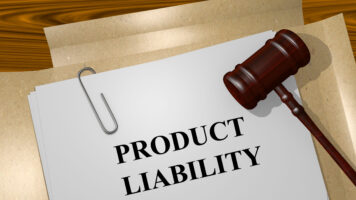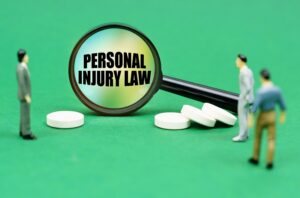If you’ve suffered an injury due to someone else’s negligence, you may be considering filing a personal injury claim to seek compensation for your losses.
When pursuing a personal injury case, one of the most common questions is, “How long will it take to settle?” The answer to this question varies depending on several factors, but understanding the process with the help of a personal injury lawyer in Bloomfield can set realistic expectations.
The Personal Injury Claim Process
Before diving into the timeline of a personal injury case, it’s important to understand the basic process.
The first step is to file a claim with the at-fault party’s insurance company. Your lawyer will investigate the incident, gather evidence, and determine the extent of your damages. They will then submit a demand letter to the insurance company outlining your case and the compensation you are seeking.
If the insurance company agrees to settle, you can receive your compensation relatively quickly. However, if they deny your claim or offer an unsatisfactory settlement, your lawyer may need to file a lawsuit and take your case to court, which can significantly extend the timeline of your case.
Factors That Affect the Length of a Personal Injury Case
Several factors can influence how long it takes to settle a personal injury case:
The Severity of Your Injuries
The severity of your injuries is one of the most significant factors that can impact the timeline of your personal injury case.
Minor injuries, such as cuts, bruises, or whiplash, may only require a few visits to the doctor and some rest to heal completely. In these cases, your lawyer can settle your case relatively quickly, often within a few months.
However, if you’ve suffered severe injuries, such as broken bones, traumatic brain injuries, or spinal cord damage, your case may take much longer to resolve. These injuries often require extensive medical treatment, including surgeries, rehabilitation, and ongoing care.
It can take months or even years to reach maximum medical improvement, which is the point that your doctor determines that your condition has stabilized and is unlikely to improve further with additional treatment.
Your personal injury attorney will wait until you reach MMI before settling your case to ensure they account for all your future medical expenses. Settling too early can leave you without the resources you need to pay for ongoing care or compensate for future lost income if your injuries prevent you from returning to work.
The Complexity of Your Case
The complexity of your personal injury case can also significantly impact the timeline for settlement.
Some cases, such as rear-end collisions or slip-and-fall accidents in hazardous conditions, may be relatively straightforward. In these situations, liability is often clear, and the insurance company may be willing to settle quickly to avoid the expense of a lengthy legal battle.
However, other cases may involve complex legal issues or disputed liability, which can extend the timeline for settlement. For example, in a medical malpractice case, multiple healthcare providers may be involved, each with their own insurance company and legal team.
Determining who is at fault and to what extent can require extensive investigation and professional testimony, which can take months or even years to complete.
Similarly, in a product liability case, your lawyer may need to investigate the defective product’s design, manufacture, and distribution to build a strong compensation case. This can involve gathering evidence from multiple sources, consulting with professionals, and navigating complex legal theories of liability.
The Insurance Company’s Willingness to Settle
Insurance companies are for-profit businesses whose primary goal is to minimize payouts on claims whenever possible. If the insurance company believes that they can avoid paying your claim altogether or offer a low settlement, they may engage in tactics to delay or complicate the process.
For example, the insurance company may dispute liability, arguing that you were partially or fully at fault for the accident. They may also challenge the severity of your injuries or the necessity of certain medical treatments, attempting to minimize the amount they have to pay out on your claim.
In these cases, your lawyer may need to file a lawsuit and take your case to court to fight for fair compensation. The mere threat of a lawsuit can sometimes be enough to bring the insurance company back to the negotiating table. Still, in other cases, your lawyer may need to take your case to trial to secure the compensation you deserve.
The Court’s Schedule
If your personal injury case goes to trial, the court’s schedule will heavily affect the timeline for resolution.
Courts in larger jurisdictions with a high volume of litigation often experience backlogs of cases. This means that it can take several months or even years to get a trial date, depending on the complexity of your case and the availability of the court.
During this waiting period, your lawyer will continue building your case, gathering evidence, depositing, and consulting with professionals. They may also negotiate settlement negotiations with the insurance company to reach a fair resolution without needing a lengthy and expensive trial.
However, it’s important to note that most personal injury cases settle before trial. The closer your case gets to trial, the more pressure the insurance company may feel to settle as the costs and risks of litigation increase.
Your personal injury attorney will work to leverage this pressure to negotiate a fair settlement on your behalf, even if it means taking your case to the courthouse steps.
Average Timeline for a Personal Injury Case
While every case is unique, there are some general timelines you can expect for a personal injury case:
Minor Injuries with Clear Liability
In personal injury cases where the injuries are minor and liability is clear, the settlement process is usually relatively quick and straightforward.
Minor injuries, such as cuts, bruises, sprains, or whiplash, do not require extensive medical treatment or long-term care. They may only require a few visits to the doctor and some rest to achieve a full recovery.
When liability is clear, there is little to no dispute about who was at fault for the accident. For example, if another driver rear-ends you while you’re waiting at a red light, they are typically at fault.
In these cases, the insurance company is likely to accept liability and offer a settlement relatively quickly to avoid the time and expense of a lengthy legal process.
Your lawyer will gather evidence of your injuries, medical expenses, and any lost income or other damages you incurred due to the accident. They will then submit a demand letter to the insurance company outlining your case and the compensation you are seeking.
If the insurance company agrees to the settlement amount, you can typically receive compensation within a few months of the accident.
Moderate Injuries with Disputed Liability
If you have suffered moderate injuries and liability is disputed, the settlement process may take several months to a year to resolve. ‘
Moderate injuries are those that require more extensive medical treatment than minor injuries but do not result in permanent disability or long-term care needs. Examples of moderate injuries may include broken bones, torn ligaments, or concussions.
When there is a dispute over liability, there is disagreement about who was at fault for the accident. For example, in a slip and fall case, the property owner may argue that you were partially at fault for not paying attention to your surroundings. In a car accident, the other driver may claim you were speeding or contributing to the collision.
Your lawyer must gather evidence to build a strong liability case in these cases. This may involve interviewing witnesses, reviewing police reports and medical records, and consulting with professionals in accident reconstruction or biomechanics fields.
Your lawyer must also negotiate with the insurance company to reach a fair settlement that compensates you for your injuries and other damages.
If the insurance company is unwilling to offer a fair settlement, your personal injury attorney may need to file a lawsuit and take your case to court. This process can extend the timeline for resolution, as it involves additional legal procedures such as discovery, depositions, and possibly a trial.
Severe Injuries with Complex Liability
If you have suffered severe injuries and liability is complex, your personal injury case may take one to two years or more to settle. Severe injuries are those that result in permanent disability, disfigurement, or the need for long-term care. Examples of severe injuries may include traumatic brain injuries, spinal cord damage, or amputation.
When liability is complex, multiple parties are involved, or legal issues require significant investigation and analysis.
For example, in a product liability case, multiple companies may have been involved in designing, manufacturing, and distributing the defective product. In a medical malpractice case, questions may arise about the standard of care and whether the healthcare provider’s actions were negligent.
In these cases, your personal injury attorney must conduct a thorough investigation to identify all the parties who may be liable and gather evidence to support your claim. This may involve reviewing complex medical records, consulting with professionals in various fields, and conducting depositions of witnesses and defendants.
Complex cases also often involve significant damages, both economic and non-economic. Your lawyer must work with professionals to calculate your future medical expenses, lost earning capacity, and other long-term costs associated with your injuries. They may also need to build a case for non-economic damages such as pain and suffering, emotional distress, and loss of enjoyment of life.
Due to the complexity of these cases and the high stakes involved, settlement negotiations can be lengthy and contentious. The insurance company may vigorously dispute liability or the extent of your damages, and your lawyer may need to file a lawsuit and litigate your case to secure fair compensation. In some cases, appeals or other legal challenges may extend the timeline for resolution.
Tips for Navigating the Personal Injury Claim Process
While you can’t control every aspect of your personal injury case, there are some things you can do to help the process go as smoothly as possible:
Seek Medical Attention Immediately
If you’ve suffered an injury, seek medical attention right away. This is crucial for your health and well-being and establishes a record of your injuries that can serve as evidence in your case. Follow your doctor’s treatment plan and attend all follow-up appointments.
Document Everything
Keep detailed records of your case, including medical bills, lost income, and any other expenses you incur due to your injuries. You should also maintain a journal documenting your pain and suffering, as it can bolster your claim for non-economic damages.
Be Patient
The personal injury claim process can be frustrating, especially when dealing with mounting medical bills and lost income. However, it’s important to be patient and trust the process. Settling too quickly or accepting a low offer can leave you without the compensation you need to fully recover from your injuries.
Work with an Experienced Personal Injury Lawyer
One of the best things you can do to ensure a successful outcome in your personal injury case is to work with an experienced lawyer. A skilled lawyer can navigate the legal process, gather evidence to support your claim and negotiate with the insurance company to secure a fair settlement.
When to Contact a Personal Injury Attorney
If you’ve suffered an injury due to someone else’s negligence, it’s important to contact a personal injury lawyer as soon as possible. The sooner you start the process, the better your chances of securing fair compensation for your losses.
Look for a lawyer who has experience handling cases similar to yours and a track record of success. Most personal injury lawyers offer free initial consultations so you can discuss your case and learn more about your legal options without any upfront costs.
Contact a Personal Injury Lawyer Today

Daniel J. Grimm, Personal Injury Lawyer
The timeline for a personal injury case can vary widely depending on the specific circumstances of your case. While some cases may settle in months, others can take years to resolve.
If you’ve suffered an injury due to someone else’s negligence, don’t hesitate to seek legal help. An experienced personal injury attorney can guide you through the process, fight for your rights, and secure the compensation you deserve.
With patience, persistence, and the right legal team, you can move forward from your injuries and get back to living your life to the fullest.





